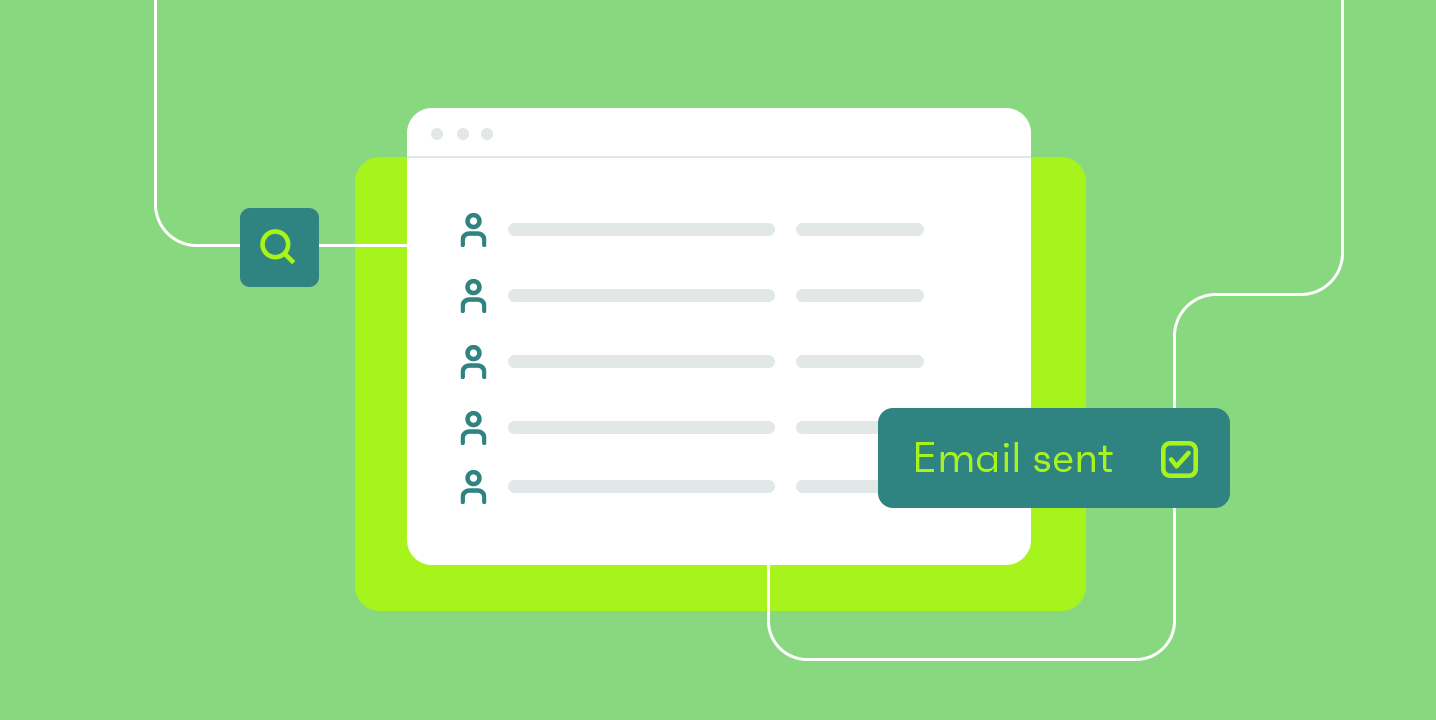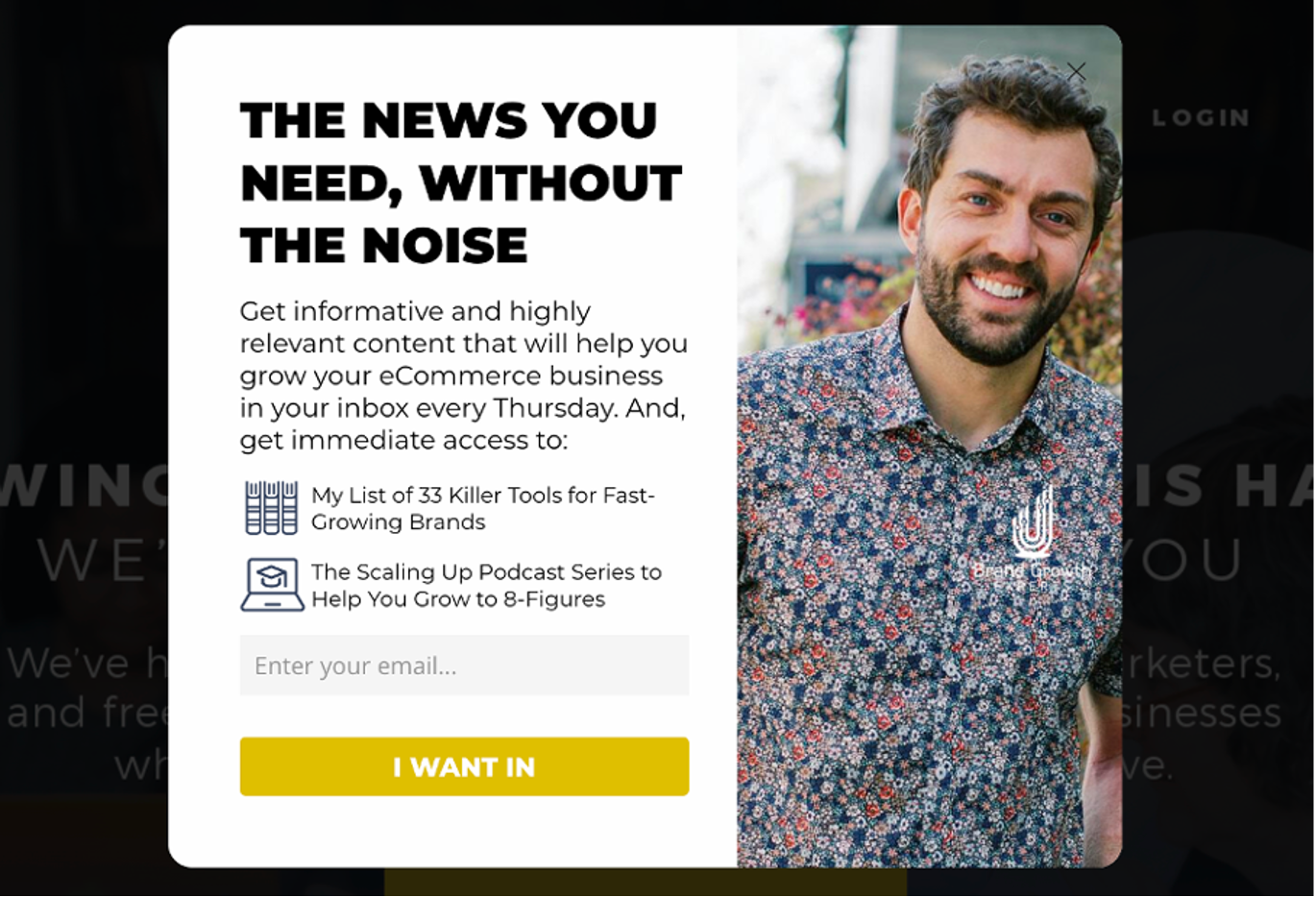To build a killer email list from scratch, create valuable content and use opt-in forms strategically. Engage users through consistent, personalized communication.
Building an email list is crucial for effective digital marketing. A well-curated list boosts audience engagement and drives conversions. Start by offering valuable content like eBooks, webinars, or exclusive discounts to attract potential subscribers. Use opt-in forms on your website, blog, and social media channels to capture email addresses.
Ensure the forms are simple and straightforward, asking only for necessary information. Personalize your communication to keep subscribers interested and engaged. Regularly clean your list to remove inactive users and maintain high deliverability rates. By following these steps, you can create a strong, responsive email list that supports your marketing goals.

Credit: wemakestuffhappen.com
Understanding Your Audience
Understanding your audience is key to building a killer email list from scratch. Knowing who your audience is helps you create content that resonates. This section will guide you through the steps to understand your audience better.
Identifying Target Audience
First, identify your target audience. These are the people who will benefit most from your emails. Start by analyzing your current customers. Look at their demographics, interests, and behaviors.
Here are some key factors to consider:
- Age: What age group do they belong to?
- Gender: Are they primarily male or female?
- Location: Where do they live?
- Income: What is their income range?
- Interests: What are their hobbies and interests?
Use this data to create a detailed profile of your target audience.
Creating Buyer Personas
Next, create buyer personas. A buyer persona is a fictional character that represents your ideal customer. This helps you understand your audience on a deeper level.
Follow these steps to create effective buyer personas:
- Research: Gather information about your audience through surveys, interviews, and data analysis.
- Segment: Group your audience based on similar characteristics and behaviors.
- Detail: Create a detailed profile for each segment, including their goals, challenges, and preferences.
Here is an example of a buyer persona:
| Attribute | Details |
|---|---|
| Name | Jane Doe |
| Age | 30 |
| Occupation | Marketing Manager |
| Goals | Improve marketing skills, stay updated with trends |
| Challenges | Lack of time, information overload |
| Interests | Reading, attending webinars, networking |
By understanding your audience and creating detailed buyer personas, you can tailor your content to meet their needs. This will help you build a highly engaged email list.

Credit: www.omnisend.com
Creating Irresistible Lead Magnets
Building a killer email list starts with creating irresistible lead magnets. These are valuable resources offered for free. They entice your audience to subscribe to your email list. Let’s dive into how you can create these lead magnets.
Types Of Lead Magnets
Choosing the right type of lead magnet is crucial. Here are some popular options:
- eBooks: Offer in-depth information on a specific topic.
- Checklists: Provide a step-by-step guide.
- Webinars: Host live or recorded sessions on a relevant subject.
- Templates: Share ready-made templates for tasks.
- Quizzes: Create engaging quizzes to reveal insights.
Each type of lead magnet serves a unique purpose. Choose the one that fits your audience’s needs best.
Designing Compelling Offers
Creating a compelling offer is about delivering value. Follow these steps to design an offer that converts:
- Identify Pain Points: Understand your audience’s challenges.
- Offer Solutions: Provide actionable solutions to their problems.
- Use Captivating Headlines: Write headlines that grab attention.
- Visual Appeal: Make the design attractive and easy to read.
- Clear Call-to-Action: Tell users exactly what to do next.
Here’s a table summarizing the key elements of a compelling lead magnet:
| Element | Description |
|---|---|
| Value | Offers significant benefit to the user. |
| Relevance | Addresses a specific need of the target audience. |
| Accessibility | Easy to access and use. |
| Visual Appeal | Attractive and professional design. |
Designing compelling offers requires understanding your audience deeply. Keep your messages clear and direct.
Optimizing Sign-up Forms
Optimizing sign-up forms is crucial for building a killer email list from scratch. Effective sign-up forms can significantly increase your subscription rate. Focus on strategic placement, appealing design, and continuous testing to maximize effectiveness.
Placement On Website
The placement of your sign-up form greatly impacts its performance. Key areas to consider include:
- Above the Fold: Place the form where visitors can see it without scrolling.
- Sidebar: A sidebar position is visible on most pages.
- Pop-ups: Pop-ups can grab attention but use them sparingly to avoid annoyance.
- Footer: Ideal for capturing subscriptions from engaged readers.
A/b Testing For Effectiveness
A/B testing helps determine which form variations perform best. Follow these steps for successful A/B testing:
- Create two versions of your sign-up form.
- Change only one element at a time (e.g., button color).
- Split your audience into two equal groups.
- Run the test for a sufficient period to gather data.
- Analyze the results and implement the better-performing version.
Elements to test include:
| Element | Variation Ideas |
|---|---|
| Headline | Different wording, font size, color |
| Call-to-Action Button | Color, text, size |
| Form Fields | Number of fields, type of information requested |
| Images | Different images, no image |
Regularly testing and optimizing your sign-up forms ensures continuous improvement. Use the insights gained to build a more effective email list.

Credit: www.crazyegg.com
Driving Traffic To Your Sign-up Forms
Driving traffic to your sign-up forms is essential for building a killer email list from scratch. The more eyes on your forms, the higher the chances of acquiring valuable subscribers. Here’s how you can effectively drive traffic to your sign-up forms.
Utilizing Social Media
Social media platforms are powerful tools for promoting your sign-up forms. Share your forms on Facebook, Twitter, Instagram, and LinkedIn. Use engaging images and compelling captions to attract attention.
- Pin your sign-up form post to the top of your profile.
- Use hashtags to reach a wider audience.
- Collaborate with influencers to share your sign-up forms.
Host giveaways or contests that require email sign-ups to participate. This strategy not only drives traffic but also incentivizes people to subscribe.
Implementing Seo Strategies
SEO strategies can significantly increase the visibility of your sign-up forms. Optimize your landing pages with relevant keywords. Ensure your content is valuable and engaging.
- Incorporate long-tail keywords related to your niche.
- Create high-quality, informative blog posts that link to your sign-up forms.
- Use meta descriptions and title tags effectively.
Focus on mobile optimization. Ensure your forms load quickly and look great on all devices. Search engines favor mobile-friendly sites, boosting your visibility.
Engaging Subscribers With Valuable Content
Building a killer email list is just the beginning. To keep subscribers engaged, you must offer valuable content. This ensures they remain interested and look forward to your emails. Let’s delve into how to achieve this.
Crafting Engaging Emails
Crafting engaging emails is an art. Every email you send should offer value. Here are some key points to consider:
- Catchy Subject Lines: The subject line is the first thing subscribers see. Make it compelling.
- Personalization: Use the subscriber’s name in the email. Personalized emails have higher open rates.
- Valuable Content: Ensure the content is relevant and helpful. Share tips, guides, or exclusive offers.
- Clear Call-to-Action (CTA): Every email should have a clear purpose. Tell your subscribers what to do next.
Segmenting Your Email List
Segmenting your email list helps send targeted content. This means dividing your list based on specific criteria. Here are some segmentation strategies:
| Segmentation Criteria | Examples |
|---|---|
| Demographic Information | Age, gender, location |
| Behavioral Data | Purchase history, email engagement |
| Interest-Based | Product preferences, content interests |
With segmentation, you can:
- Send more relevant content to each group.
- Increase email open and click-through rates.
- Reduce unsubscribe rates.
By crafting engaging emails and segmenting your list, you can keep subscribers interested and loyal.
Analyzing And Improving Results
Building a killer email list is just the beginning. To achieve great results, analyzing and improving your email campaigns is crucial. This section will guide you on tracking key metrics and optimizing email campaigns effectively.
Tracking Key Metrics
Tracking key metrics helps you understand the performance of your email campaigns. Focus on these important metrics:
- Open Rate – The percentage of recipients who open your email.
- Click-Through Rate (CTR) – The percentage who clicked on any links in the email.
- Conversion Rate – The percentage who completed a desired action (e.g., purchase).
- Bounce Rate – The percentage of emails that couldn’t be delivered.
- Unsubscribe Rate – The percentage of recipients who opted out of your list.
Optimizing Email Campaigns
Optimizing email campaigns ensures better engagement and higher conversion rates. Here are some tips to optimize your campaigns:
- Segment Your List: Group subscribers based on interests or behavior. This allows for more targeted emails.
- Personalize Content: Use the recipient’s name and tailor content to their preferences.
- A/B Testing: Test different subject lines, images, and calls-to-action to see what works best.
- Optimize Send Times: Experiment with different times and days to see when your audience is most responsive.</li
- Analyze Feedback: Use surveys and feedback forms to understand what your audience likes or dislikes.
Below is a table summarizing the key metrics and their importance:
| Metric | Importance |
|---|---|
| Open Rate | Indicates the effectiveness of your subject line. |
| CTR | Shows how engaging your content is. |
| Conversion Rate | Measures the success of your call-to-action. |
| Bounce Rate | Helps identify issues with your email list. |
| Unsubscribe Rate | Indicates the relevance of your content. |
Frequently Asked Questions
How Do I Start Building An Email List?
Begin by identifying your target audience. Use signup forms on your website. Offer incentives like free ebooks.
What Are The Best Ways To Grow An Email List?
Use social media, create valuable content, and offer lead magnets. Collaborate with influencers.
How Often Should I Email My List?
Email your list regularly but not excessively. Once a week is generally effective. Test for best frequency.
What Tools Can Help With Email List Building?
Use tools like Mailchimp, ConvertKit, and AWeber. These platforms offer signup forms and automation.
Conclusion
Building a killer email list from scratch requires patience and strategy. Focus on providing value to your subscribers. Utilize opt-in forms, lead magnets, and social proof. Regularly engage with your audience to maintain interest. Follow these steps to create a strong, responsive email list that drives results.
Start now and see the benefits unfold!
